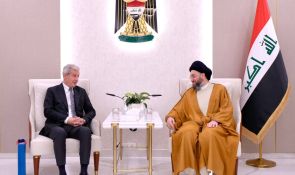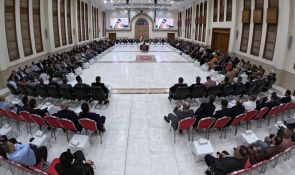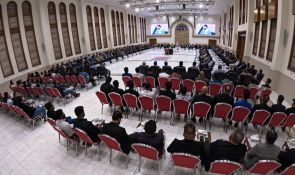Sayyid Al-Hakeem: One’s stomach mustn’t be sin vessel, little or a lot
Sayyid Ammar Al-Hakeem, Head of Al-Hikma National Movement, congratulated the Islamic Nation on the advent of the blessed month of Ramadan on 13/3/2024, and continued his discourse on Imam Zain al-Abidin's “PBUH” message of rights, elucidating that society is founded on the principles of rights and duties. What is rightfully yours is also a duty upon others, and vice versa. H.E. affirmed that the system of rights in the Islamic perspective is based on four principles: human dignity, correct faith, noble values, and upright conduct, without discrimination based on sectarian or national affiliations. This system aligns with human nature and its natural needs without undue complication or arbitrariness in its implementation and application.
His Eminence mentioned in lectures from the previous year that the message of rights serves as a concise representation of the system of rights from the Islamic perspective, regulating the relationship between individuals and their Lord, themselves, and others. H.E. concluded with the eighth right, the right of the stomach, where Imam Zain Al-Abidin “PBUH” emphasizes the importance of not allowing the stomach to be a receptacle for the unlawful, urging moderation in lawful consumption. One should not exceed the bounds of sustenance and rely excessively on indulgence in food and drink, which leads to moral degradation, humiliation, and laziness.
H.E. further explained that the stomach encompasses more than just the stomach itself, involving other organs. H.E. elaborated on the Qur'anic injunctions regarding sustenance and livelihood, as well as verses highlighting eating and drinking as divine blessings bestowed upon His servants out of His kindness to fulfill their natural needs. H.E. also discussed the utilization of the strength derived from sustenance in obedience to Allah and His pleasure, pointing out the moral effects to be considered during eating, such as gratitude, piety, avoiding the steps of Satan, extravagance, and corruption.










